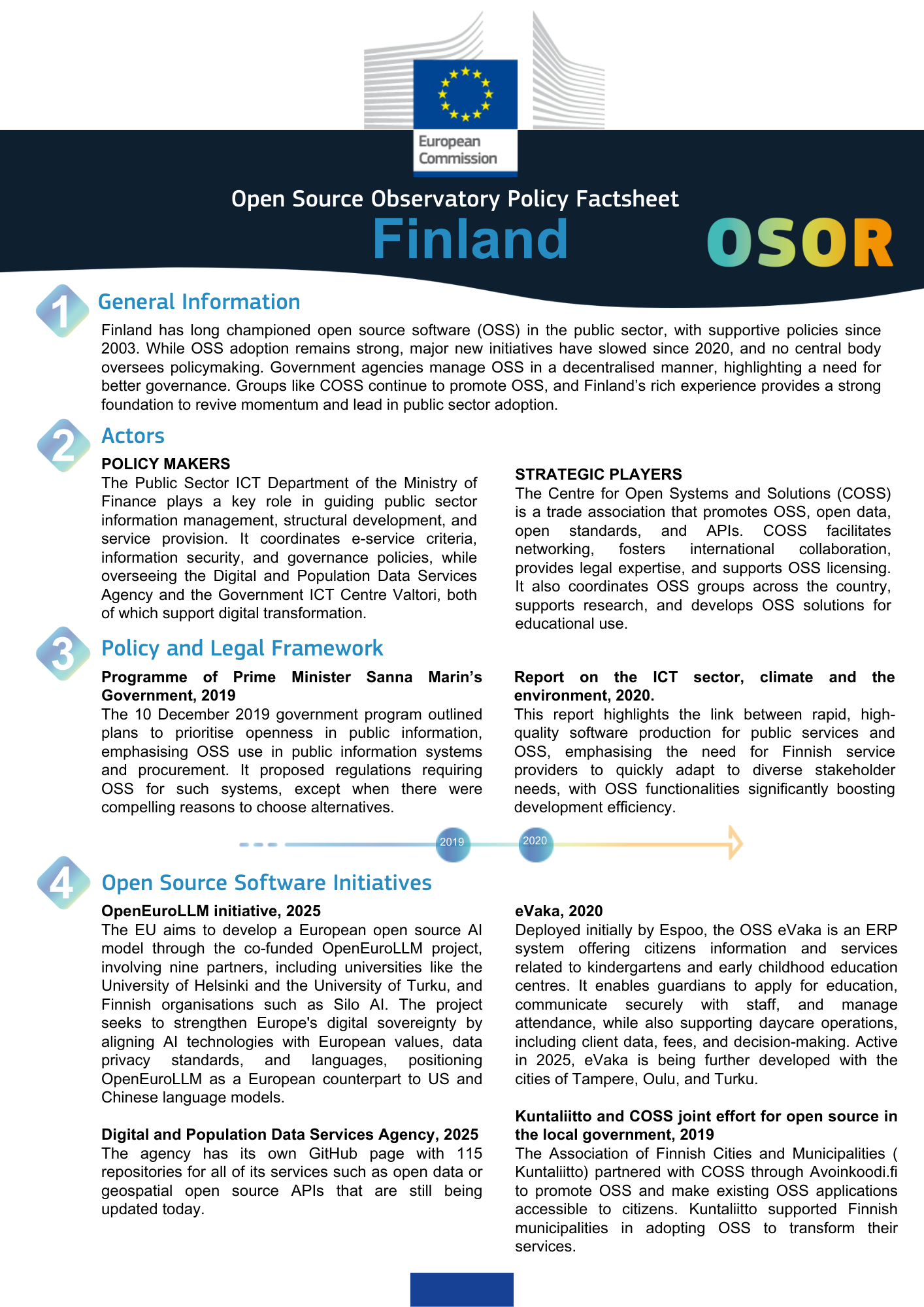OSOR has published an update to the Finland Country Intelligence report, highlighting recent trends and developments in the use of open source software (OSS) in the country and following up on the 2020 report. You can find the report here and the factsheet here.
Finland began promoting OSS as a viable alternative to proprietary software as early as 2003, introducing supportive policies to encourage its adoption. A significant expansion of the open source ecosystem occurred around 2019, driven by new policies and legal frameworks. However, the most recent government programme notably omits any reference to OSS, marking a shift in official priorities.
Moreover, the report identifies that there is no central government body responsible for OSS policymaking in Finland. Instead, various governmental agencies independently run OSS initiatives in a decentralised manner, revealing an opportunity to improve coordination, development, and governance of OSS within the public sector. Despite this fragmentation, support for OSS remains strong across several government bodies, including the Ministry of Finance. Additionally, organisations such as COSS, Open Knowledge Finland, and the Finnish Unix Users Association actively collaborate to promote and advocate for the adoption of OSS nationwide.
Despite Finland’s strong tradition of OSS use, development, and maintenance in the public sector, few major new initiatives have emerged since 2020. One notable exception is the OpenEuroLLM initiative, that aims at developing a European open source AI model. The initiative brings together a consortium including Finnish universities. Finally, Finland's rich tradition and extensive experience in open source software provide a strong foundation for future progress. With its proven track record in OSS adoption and development, the country is well-positioned to renew momentum and serve as a leading example for open source innovation in the public sector.


